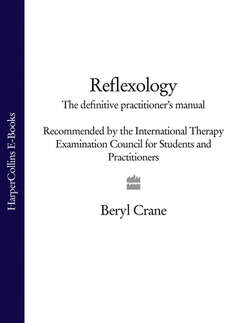Читать книгу Reflexology: The Definitive Practitioner's Manual: Recommended by the International Therapy Examination Council for Students and Practitoners - Beryl Crane - Страница 58
Questioning
ОглавлениеThis aspect of diagnosis, whether using a Western or an Eastern system, can be summed up by an old Chinese quotation called the ‘ten askings’:
• One, ask chill or fever
• Two, ask perspiration
• Three, ask head or trunk
• Four, ask stool or urine
• Five, ask food intake
• Six, ask respiratory
• Seven, ask deafness or thirst
• Eight, ask past history
• Nine, ask energy
• Ten, ask causes (nowadays we would look at behaviour patterns and lifestyle).
This ancient Chinese system is still used today even in the West. In reflexology we must ask questions, not necessarily to find the nature of the disorder, but to ascertain which organ or part of the body may be in a disturbed state. When palpating on the feet, hands or ears we can also diagnose imbalances by tender spots; however, painful reactions can be caused by all sorts of variables.
During questioning the reflexologist should note carefully what the patient is complaining of. Specific questions may include the following:
• Onset – is the disease or disorder acute or chronic?
• Is there an overactive or deficient organ?
• Are there tender spots on the feet, hands or ears? These can be a signal of a functional problem that is not yet evident.
• Is the person suffering from overtiredness?
• Is there an inherited tendency?
• Are there any foot complaints?
• Have there been any injuries or accidents to consider?
• Where is the site of pain? Does it radiate up or down?
• What is the nature of the pain? Is it sharp or dull? Is it constant or intermittent? Is the pain bearable?
• Is it a slight problem (this means that the patient can still attend to their daily tasks with a little discomfort)? Is it severe (meaning that the patient cannot carry out the normal daily tasks)?
